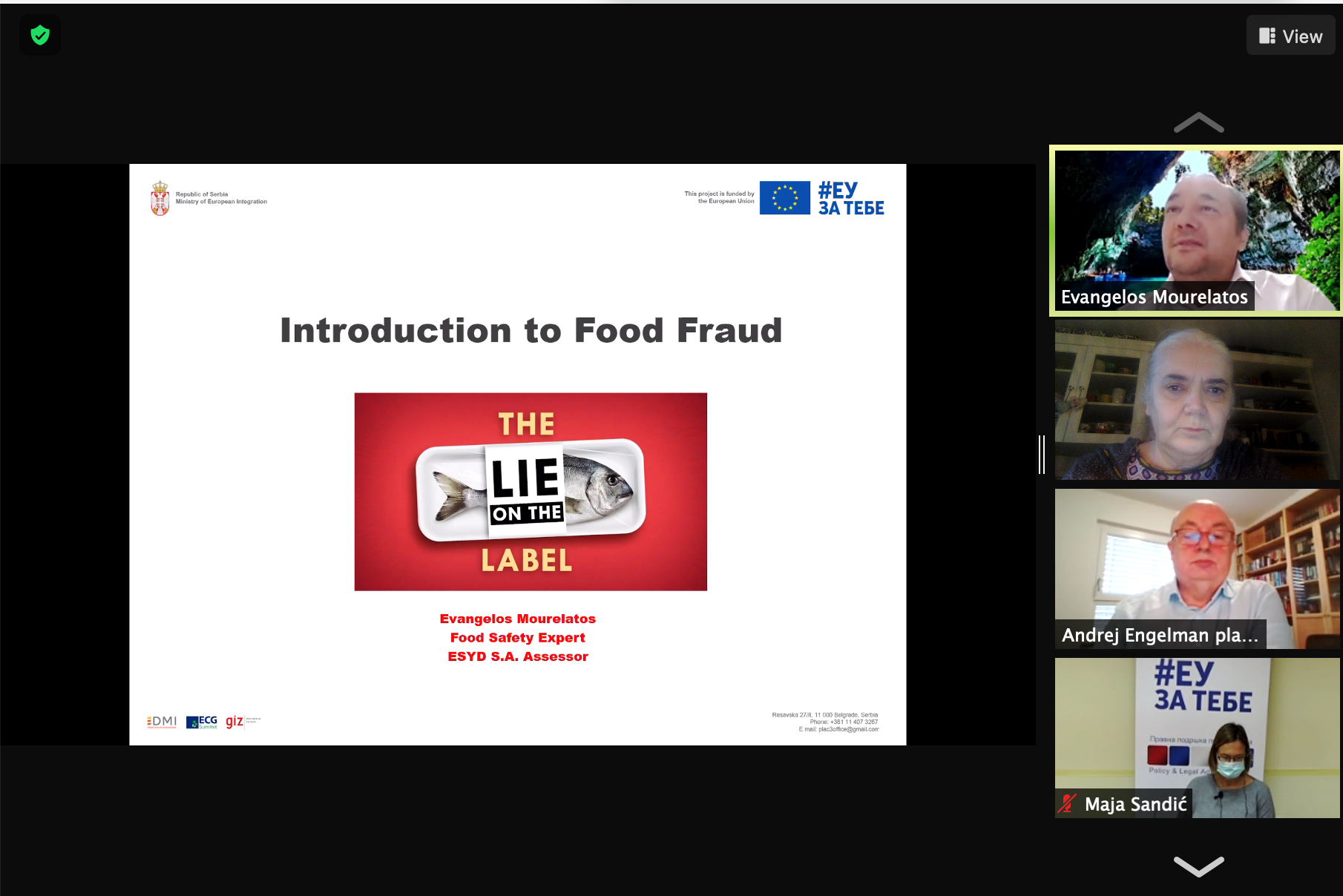More than 30 inspectors from the Veterinary Directorate (Border Inspection) and the Plant Protection Directorate of the Ministry of Agriculture, Water Management and Forestry participated in a two-day training session on food fraud held by PLAC III project experts on 1-2 December 2020.
The training session held online focused on how to identify and recognise products and establishments that do not meet requirements of the EU Regulation on Official Controls, as well as approved facilities that operate in line with the Regulation, but products coming from them may be suspicious as “counterfeit food”. Particular attention was paid to fishery products, which are often subject of frauds.
The application of the Regulation on Official Controls (Regulation (EU) 2017/625) is crucial to ensure the compliance of the rules laid down in the Animal Health Law, Plant Health Law and in other legislations regulating food safety. The Regulation aims to create an integrated and uniform system of performing official controls along the agri-food chain. It sets up general rules for the performance of official controls to verify compliance with the rules for the prevention, elimination and minimization of risks to humans and animals. The issue of food fraud requires close cross-border cooperation among administrations as well as training of competent border veterinary inspectors. The European Commission in its Country progress report states that in Chapter 12, Serbia should especially increase the efficiency of controls by strengthening the administrative capacity for inspections and applying risk-based approach to sanitary control at borders.
As part of the support in the area of Negotiating Chapter 12, PLAC III project experts prepared an analysis of relevant national legislation with recommendations for improvements and alignment with Union acquis as well as a draft Guidelines for border veterinary inspectors and held the training session.
Project expert Maja Sandić presented to the participants the legal analysis of the existing national legislation related to food, food safety and food fraud. Recommendations for improvement are either the amendments to the Law on Food Safety or the adoption of a set of new regulations – the law on official controls, the regulation on food fraud and the rulebook. In either case, it is necessary to introduce provisions of “food fraud” and “fraudulent activities of materials coming into contact with food“. Also, it is necessary to improve the capacity of the competent authorities since a job position that deals only with food fraud does not exist at present.
Food fraud can occur in any place in the food supply chain. The one of many definitions says ‘food fraud is a fraud in which food is used for economic gain’, project expert Evangelos Morelatos said. Food frauds affect consumers, food business operators and the competent state authorities and in order to prevent them it is necessary to act throughout the chain.
He introduced the participants to the food fraud types as well as to the standard international systems related to food safety and fraud detection. These are: HACCP (Hazard Analysis Critical Control Points, which is a food safety risk reduction system), Vulnerability assessment for food fraud and Threats of malicious tampering. On concrete examples, the development of a Vulnerability assessment for food fraud was presented, as well as the development of a Food fraud mitigation plan. As especially important, the expert pointed out that a sound knowledge and understanding of the market is crucial in order to act in the right direction in preventing food frauds.
In the discussion with the participants, it was pointed out that the multi-year plan of official controls for products susceptible to fraud should be accompanied by a plan for prevention of fraud in the food industry.




